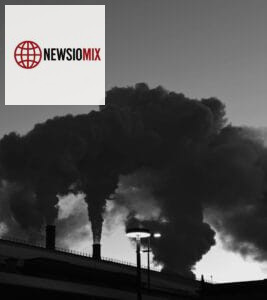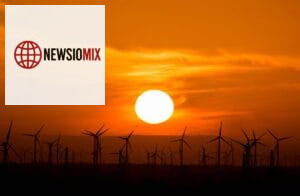Is Earth Really Getting That Hot? The Alarming Truth About Rising Temperatures and Pollution
When Summer Feels Unbearable
Imagine stepping outside on a bright summer day, only to feel the sun weighing down on your skin like a heavy blanket. Your first instinct is to look for shade, but even there, the heat is inescapable. Across the world, more people are experiencing this exact sensation as global temperatures continue to climb.
According to climate scientists, the planet is warming at a pace never seen before. The cause? A dangerous mix of rising greenhouse gases, industrial pollution, and unsustainable human activity. But how hot could it really get? And why is pollution playing such a massive role in this global crisis?

How Hot Are We Talking? Record-Breaking Temperatures Explained
While a one or two-degree change might sound minor, it’s far from harmless. The Intergovernmental Panel on Climate Change (IPCC) warns that without immediate global action, Earth’s average temperature could rise by 4.4°C (7.9°F) by 2100. To dive deeper into the topic, you can read our related article: Climate Change and Global Warming in 2025.
What does that mean in real life? Here are some shocking predictions:
- Regular heatwaves over 50°C (122°F) in places like the Middle East, India, and Southern Europe.
- Increased occurrence of so-called tropical nights, where nighttime temperatures stay above 30°C (86°F).
- Some areas may become unlivable for months of the year.
In 2023, cities like Phoenix, Arizona, recorded over 30 consecutive days above 43°C (110°F). This isn’t a distant future problem—it’s happening right now.
The Pollution Factor: Why This Isn’t Just Natural
You might wonder, isn’t the Earth supposed to get warmer sometimes? Yes, but never this fast. The key difference now is human-driven pollution:
- Carbon Dioxide (CO₂): Emitted from cars, factories, and power plants, CO₂ traps heat in the atmosphere.
- Methane (CH₄): Released by livestock, landfills, and the oil industry, methane traps 25 times more heat than CO₂.
- Black Carbon (Soot): From burning fossil fuels and biomass, it directly heats the atmosphere and melts ice.
Scientists call this the greenhouse effect. The more pollutants in the atmosphere, the thicker the heat-trapping layer becomes. And urban areas feel it worst due to the urban heat island effect, where concrete and steel absorb and retain heat.
The Human Side: Stories Behind the Statistics
While graphs and numbers help us understand the crisis, real human stories show its true impact.
- Fatima in Karachi: She can’t sleep during summer nights because the power cuts stop her fan from working.
- Carlos in Spain: His olive farm is producing less each year due to extreme drought.
- Emma in London: Once famous for rainy weather, now experiencing record heat each summer.
Beyond discomfort, rising heat causes:
- Heatstroke and dehydration.
- Food and water shortages.
- Power outages as electricity demand spikes.
- Mental health issues linked to climate anxiety.
Why Pollution Makes Heatwaves Worse: The Science
When pollution traps heat, it doesn’t just make air warmer. It creates feedback loops:
- Dry soil reflects less sunlight, heating the air more.
- Less rainfall means less natural cooling.
- Fewer trees due to deforestation means less shade and less carbon absorbed.
A single heatwave can also increase pollution. During wildfires, for example, smoke fills the sky, further warming the atmosphere and creating a vicious cycle.
Is There Still Hope? Positive Actions Happening Now
Despite the grim outlook, cities and countries are making bold changes:
- Green Energy: Solar, wind, and hydro are replacing coal and oil.
- Urban Greening: Cities are planting trees and installing cool roofs.
- Youth Movements: Activists like Greta Thunberg have inspired millions.
Even on an individual level, you can help by:
- Using public transport or biking.
- Reducing meat consumption.
- Supporting eco-friendly products.
- Voting for leaders prioritizing climate action.
A Global Story That Touches Everyone
Climate change isn’t just for scientists or politicians to worry about. It affects everyone—rich or poor, north or south. As global temperatures climb, we’re all in the same boat.
- Parents worry about their children’s futures.
- Farmers worry about their land.
- City dwellers worry about power outages and health.
The question is no longer “Is the Earth getting hotter?” It’s “How hot will we let it get?” Pollution and human choices have accelerated global warming to dangerous levels. But there is still a window of opportunity.
If governments, companies, and individuals act decisively today, we can slow down rising temperatures and give future generations a livable planet.
So next time you step outside and feel that overwhelming heat, remember: it’s not just the weather. It’s a signal. And it’s time to listen.
resorces
https://www.ipcc.ch/reports
https://www.unep.org/news-and-stories/story/air-pollution-levels
Share this content:











